Top Ten Sci-Fi Adaptations
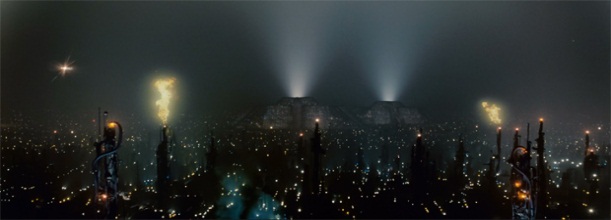
#10 Children of Men
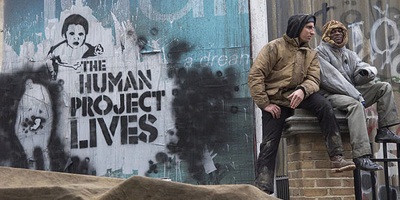
Released in 2006 and loosely based on P.D. James’ 1992 novel The Children of Men this adaptation was not a financial success. But it was, more importantly, a critical success; receiving 3 Academy Award Nominations and winning 2 BAFTA’s.
The film, directed by Alfonso Cuarón, made substantial changes from the novel in terms of plot, political message and characters. But the overall premise was the same; what would happen if the entire human population became infertile?
#9 Dr. Strangelove or: How I Learned to Stop worrying and Love the Bomb
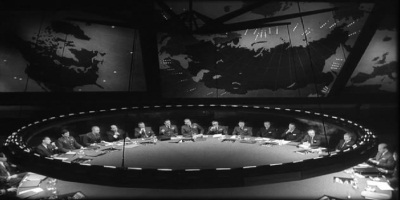
Stanley Kubrick’s 1964 film was adapted from Peter George’s cold war thriller Red Alert (or Two Hours to Doom by its UK title). The original concept did not stem from the novel; Kubrick was playing with the idea of making a thriller about a nuclear accident when the book was recommended to him by Alistair Buchan (the head of the Institute for Strategic Studies). Kubrick immediately bought the film rights and collaborated with George on the script.
Kubrick initially intended on a drama but the inherent comedy in the theory of Mutually Assured Destruction was too much to resist; the film descended into a black comedy. The novel was originally a thriller, which is one major deviation another is that in the novel there was no Dr. Strangelove. The title character was added in during the transition from text to film.
#8 Minority Report

The first entry from novelist Philip K Dick; The Minority Report was published in 1956 as part of a collection of short stories called Fantastic Universe. In 2002 Steven Spielberg directed the adaptation to huge commercial and critical acclaim. Minority Report was the best reviewed film of 2002.
There were a couple of deviations worth noting; as with any adaptation. In the film edition the main character John Anderson takes the form of Tom Cruise, who joins precrime after his son is kidnapped. In the novel Anderson is 50, balding and out of shape. He never had any children and he did not join precrime; he created it. There are many differences between the characters of the precogs (in the short stories they see all crime, not just murder) and for some reason the setting of the story was changed from New York to Washington D.C.
#7 War of the Worlds
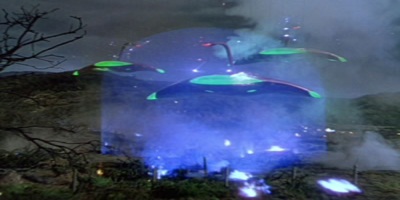
In 1898 H.G. Wells released War of the Worlds. The best adaptation of this novel was undoubtedly Orson Welles’ radio broadcast on 30th Oct 1938. He single-handedly proved the gullibility of a nation. The broadcast was so realistic that it had Americans running to the hills for fear that aliens actually were invading… Well-done Mr. Welles! But the topic we’re on is film and as such I must mention the 1953 adaptation of War of the Worlds. Barreé Lyndon wrote the script and the film itself won an Oscar for its special effects.
There, of course, were some deviations from the original format the main ones being the change in plot and main character. The novel focuses on the story of a 19th century journalist journeying through Victorian London when the attack begins; his main objective being reuniting with his wife. The movies protagonist is a Californian scientist who falls for his former college student when the attack begins.
#6 Planet of The Apes
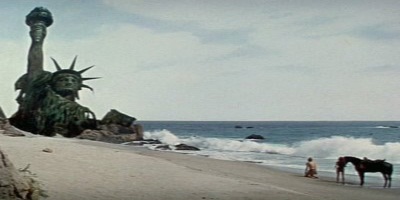
Representing the only non-English novel to be included in this list; Planet of the Apes is derived from the French book La Planѐte des Singes which was written in 1963 by Pierre Boulle. The media franchise it spawned has had a huge influence on popular culture. There have been two film adaptations (but only two worth noting); one in 1968 and another in 2001, a TV series, comic books as well as lunch boxes etc.
The first film adaptation was in 1968, directed by Franklin J. Schaffner, and was the first installment of a five part series made between 1968 and 1973. The make-up and special effects, done by John Chambers, were far ahead of their time. It developed a cult following over the years.
Rupert Wyatt will direct a new Planet of the Apes movie that will be released on 5th August 2011. This series is being promoted as the foundation of original story for a new series. I wonder will it be as groundbreaking as the original, or flop like the others?
#5 Blade Runner
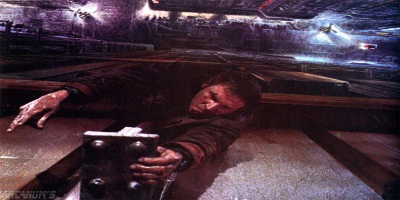
Based on the novel by the legendary Philip K Dick Do Androids Dream of Electric Sheep? Blade Runner was an absolute box office flop but it is now regarded as one of the best movies ever made carrying a hugely loyal cult following.
Blade Runner was the first instance of Philip Dick selling his work to Hollywood; once he was brought to their attention every one of his more popular novels made the transfer. After the film’s release in 1982 the producers convinced Philip to re-release his novel under the name Blade Runner. Dick agreed but he did refuse an offer of $400,000 to write the novelization of the screenplay; saying that it would have been disastrous for him artistically. He did, however, approve of the film adaptation “After I finished reading the screenplay, I got the novel out and looked through it. The two reinforce each other, so that someone who started with the novel would enjoy the movie and someone who started with the movie would enjoy the novel.”
#4 Jurassic Park
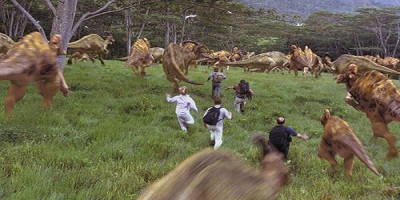
Spielberg bought the film rights of this novel before it was even published. Michael Crichton’s, the novel’s author, was brought on board to adapt the book for the screen although David Koepp was brought in to write the final edition; leaving out the novels exposition and excessive violence. The film was unprecedentedly successful grossing over $914 million worldwide, winning 3 Oscars, gaining 15 nominations and winning another 19 awards.
No wonder it was so successful with such classic scenes (everybody remembers the scene where the bad guy gets eaten by the T-Rex while he’s on the toilet).
#3 2001: A Space Odyssey
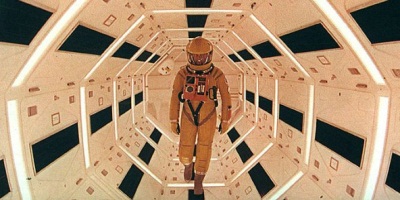
Arthur C. Clarke developed the novel concurrently with Stanley Kubrick’s film and published it after the film was released. The story for both was based on some of Clarkes earlier short stories; most notably his 1951 publication Sentinel of Eternity.
The novel follows earlier drafts from which the movie was deviated. The most notably difference is the strong narrative structure in the novel compared to the almost entirely visual experience of the film.
#2 Harry Potter
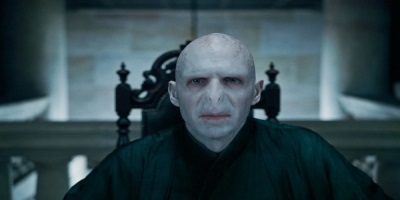
The last four books of J.K. Rowling have set records for the fastest selling books in history. They have been translated into 67 languages. The first novel was released in 1997 and in 1998 Warner Brothers bought the rights to the first 4 books for $1.98million.
Rowling did the right thing in keeping creative control; she insisted that the characters be kept British instead of mongrelizing the whole story. There is much debate between fans as to which is better; the first few installments which were more loyal to the original text or the later more stylized and character driven editions.
#1 Lord of the Rings
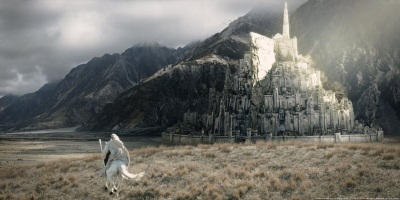
The series of Lord of the Rings was written between 1937 and 1949 by the University of Oxford professor J.R.R. Toleikn. It is the second bestselling novel ever written ( A Tale of Two Cities by Charles Dickens takes the lead selling over 200 million copies). Therefore it’s not very surprising to see it’s timeless influence.
The novel has been adapted many times but the one most worthy of note is New Line Cinema and Peter Jacksons interpretations in 2001, 2002 and 2003. These were massively successful films; the final installment broke the $1billion barrier and won no less than 11 Oscars. This is the kind of success most people only dream of!


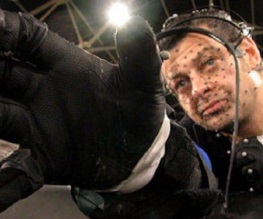

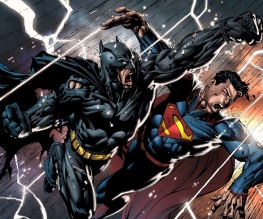
Wow. You REALLY don’t know what “sci-fi” stands for, do you?